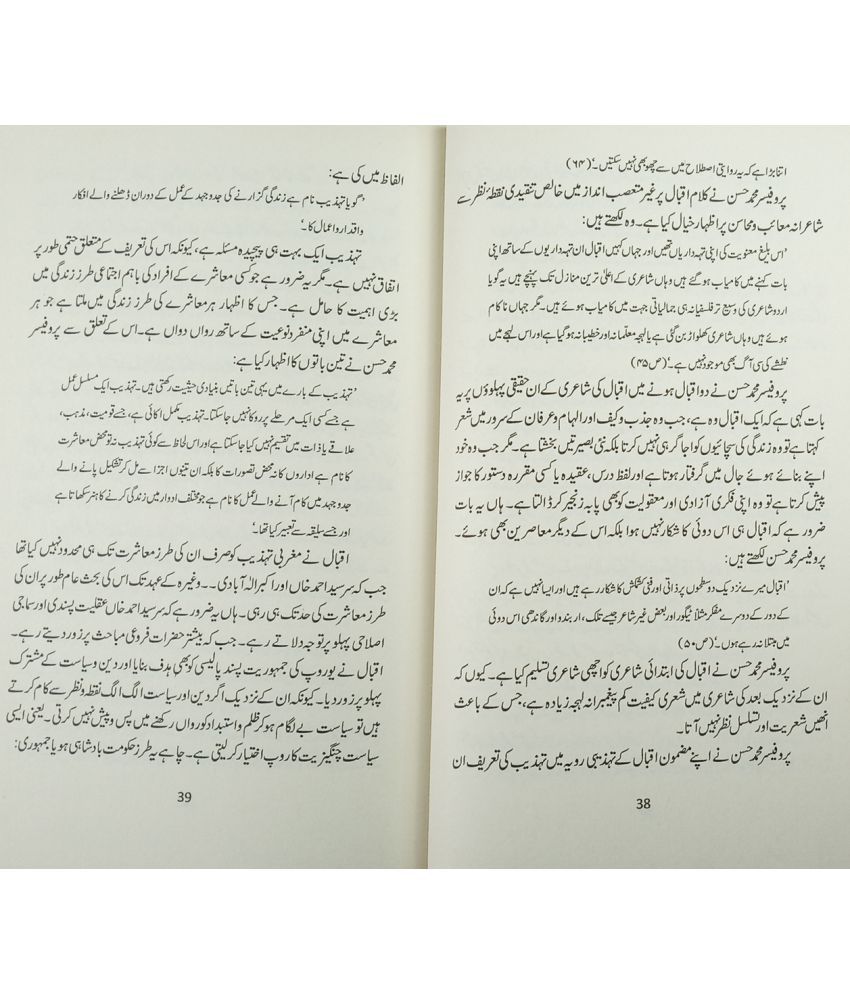Iqbaliyat
Iqbaliyat is a term that is frequently used in Urdu literature. It refers to the study of the works of Allama Muhammad Iqbal, who is considered one of the most influential poets and philosophers in South Asia. But what is it about Iqbaliyat that makes it so captivating for readers and scholars alike?
The Pain Points of Iqbaliyat
Iqbaliyat encompasses a vast range of topics, from philosophy and religion to politics and cultural identity. For some readers, this can be overwhelming, as they struggle to make sense of the complex themes and ideas that Iqbal presents in his works. Additionally, the language and style of Iqbaliyat can be daunting, especially for non-native speakers of Urdu.
The Target of Iqbaliyat
However, for those who are willing to invest the time and effort, Iqbaliyat offers a rich and rewarding experience. By studying Iqbal's works, readers gain a deeper understanding of the complexities of human society and the individual's role within it. They also gain insight into the cultural and historical context in which Iqbal lived and worked, which can help them to better understand the world around them.
Summary of the Main Points
In summary, Iqbaliyat is a field of study that centers around the works of Allama Muhammad Iqbal. While it can be challenging to navigate at first, it offers a wealth of insights and understanding for those who are willing to take the time to engage with it.
The Target of Iqbaliyat: A Personal Experience
When I first started to study Iqbaliyat, I was overwhelmed by the complexity of the themes and ideas that Iqbal presented. However, as I began to delve deeper into his works, I found that they provided me with a greater understanding of not only Urdu literature, but also of the world around me. In particular, I was struck by Iqbal's emphasis on the importance of individual agency and action, even in the face of seemingly insurmountable obstacles.
One of the most memorable aspects of my study of Iqbaliyat was the way in which it opened up new avenues of exploration for me. I found myself drawn to related topics, such as the history of South Asia and the development of Islamic philosophy, which enriched my understanding of Iqbal's works and the context in which he lived.
The Importance of Iqbal's Ideas
One of the key insights that Iqbaliyat offers readers is a deeper understanding of the ways in which cultural and political factors shape our understanding of the world. Iqbal's works offer a critique of the status quo and call for a more engaged and active approach to life and society. His ideas continue to resonate with readers today, as we grapple with questions of identity, culture, and global society.
The Role of Iqbaliyat in Contemporary Discourse
Contemporary scholars and writers continue to engage with Iqbaliyat, exploring its relevance for contemporary debates and discussions. Some have focused on the role of Iqbal's ideas in shaping modern Islamic thought, while others have explored the connections between Iqbaliyat and broader debates about decolonization and cultural identity.
The Relevance of Iqbaliyat Today
Ultimately, the relevance of Iqbaliyat lies in its ability to offer readers a deeper understanding of the complexities of human society and the individual's role within it. It challenges us to engage with difficult questions and to seek out new avenues of exploration and understanding.
Question and Answer
Q: What are some of the main themes of Iqbaliyat?A: Iqbaliyat encompasses a broad range of themes, including philosophy, religion, culture, and politics. Some of the key ideas that Iqbal explores in his works include the importance of individual agency, the nature of human society, and the quest for a more just and equitable world. Q: Who are some of the key figures in the study of Iqbaliyat?
A: There are many scholars and writers who have contributed to the study of Iqbaliyat, including Muhammad Baqir, Dr. Shabbir Ahmad, and Maulana Abul Kalam Azad. Q: How has Iqbaliyat influenced contemporary thought and culture?
A: Iqbaliyat has had a profound influence on contemporary thought and culture, both within South Asia and beyond. Iqbal's emphasis on individual agency and action, as well as his critique of the status quo, continue to resonate with readers today. Q: What is the significance of Iqbal's commitment to the idea of a "spiritual democracy" in his works?
A: Iqbal's concept of spiritual democracy reflects his belief in the importance of individual freedom and agency, as well as his rejection of authoritarianism and dogmatism. This idea continues to be relevant today, as we grapple with questions of democracy, human rights, and social justice.
Conclusion of Iqbaliyat
Iqbaliyat is a field of study that offers readers a rich and rewarding experience. By engaging with the works of Allama Muhammad Iqbal, readers gain a deeper understanding of the complexities of human society and the individual's role within it. While Iqbaliyat can be challenging at times, it ultimately offers a profound and transformative experience for those who are willing to engage with it.
Gallery
Bang-e-Dara - The Call Of The Marching Bell - Starting - Shehar-e

Photo Credit by: bing.com / bang dara marching bell call iqbal kulliyat urdu starting نگ با علامہ کلام اقبال محمد message
Iqbaliyat E Md. Hasan Urdu Criticism On Ashaar Of Iqbal: Buy Iqbaliyat

Photo Credit by: bing.com / urdu hasan ashaar iqbal criticism
Iqbaliyat - Khiraj-e-Aqeedat By Quaid-e-Azam - Shehar-e-Karachi | News

Photo Credit by: bing.com / iqbal kulliyat allama marching bell call message bang dara quaid محمد اقبال علامہ کلام azam book poetry zarb oneness ضرب
Iqbaliyat (Urdu) - Android Apps On Google Play
Photo Credit by: bing.com / urdu
Mohammad Areeb (13years Old) From... - School Of Iqbaliyat

Photo Credit by: bing.com /
